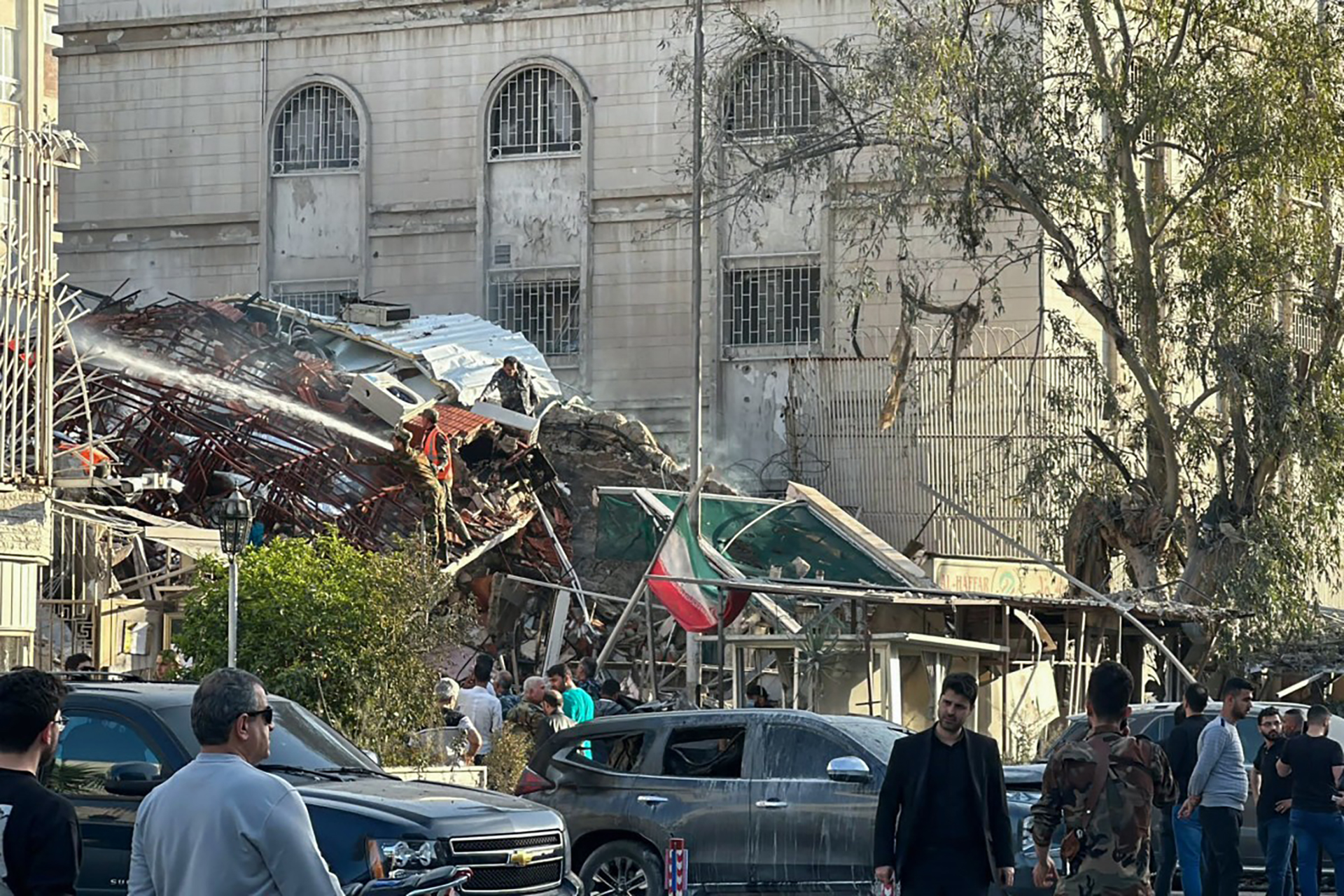Part of the destruction following the targeting of the Iranian consulate in Damascus (French)
Iran faces a dilemma in the wake of the Israeli attack on its consulate in Syria, as it considers how to respond without igniting a broader conflict that Middle East analysts say Tehran does not appear to want.
Monday's attack, which killed two Iranian commanders and five military advisers in the Iranian consulate building in the Mezzeh neighborhood of Damascus, came as Israel accelerated a long-running campaign against Iran and allied armed groups, and Iranian Supreme Leader Ali Khamenei vowed revenge.
Among the options offered to Iran to respond are to unleash groups allied with it to launch operations against American forces, or to use them to launch direct strikes on Israel, or to intensify its nuclear program, which the United States and its allies have long sought to curb.
American officials - who spoke to Reuters on condition of anonymity - said that they are closely monitoring the situation to see whether groups allied with Iran will attack American forces stationed in Iraq and Syria, as has happened in the past, in response to the Israeli attack that occurred on Monday.
Such Iranian attacks stopped in February after Washington responded to the killing of 3 American soldiers in Jordan with dozens of air strikes on targets in Syria and Iraq linked to the Iranian Revolutionary Guard and factions supported by it.
US officials said they had not yet obtained intelligence indicating that groups allied with Iran were looking to attack US forces following Monday's attack, which Iranian media said killed members of the Revolutionary Guard, including senior commander Mohammad Reza Zahedi.
Yesterday, Tuesday, the United States explicitly warned Tehran against attacking its forces, and Robert Wood, the US Deputy Ambassador to the United Nations, said, “We will not hesitate to defend our forces, and we repeat our previous warnings to Iran and its agents not to exploit the situation to resume their attacks on American military personnel.”
Avoid all-out war
A source who closely follows the issue, and asked Reuters not to mention his name, said that Iran is once again facing the problem of wanting to respond to deter Israel from launching more such attacks while also wanting to avoid an all-out war.
He continued, "They face this real dilemma. If they respond, this may result in a confrontation that they clearly do not want. They are trying to modify and control their actions in a way that shows their readiness to respond, but not to escalate."
He added, "If they do not respond in that case, it will truly be a sign that their deterrence is a paper tiger," and said that Iran may attack embassies of Israel or Jewish facilities abroad.
The American official confirmed that, given the size of the Israeli strike, Iran may be forced to respond by attacking Israeli interests more than its tendency to attack American forces.
Elliot Abrams, a Middle East expert at the Council on Foreign Relations, an American research institution, says he also believes that Iran does not want an all-out war with Israel, but it may target Israeli interests.
Abrams added, "I believe that Iran does not want a major war between Israel and Hezbollah currently, and therefore any response will not come in the form of a major move on the part of Hezbollah. They have many other ways to respond... for example by trying to blow up an Israeli embassy."
Iran could also respond by accelerating the development of its nuclear program, which it has intensified work on since the United States withdrew under former US President Donald Trump in 2018 from the Iranian nuclear agreement signed in 2015, an agreement aimed at restricting Tehran’s nuclear capabilities in exchange for economic benefits.
But the two most powerful steps are to increase uranium enrichment to a purity of up to 90%, which is a percentage suitable for making bombs, and to revive work on designing an actual weapon that may cause harm to Tehran, as it may require Israeli or American strikes.
The source, who is closely following the issue, said, "Israel and the United States will consider the two solutions as a decision to obtain a bomb. It will be a major risk. Are they ready for it? I do not think so."
John Alterman, director of the Middle East Program at the Center for Strategic and International Studies (CSIS) in Washington, does not expect a massive Iranian response to the attack on its embassy.
He said, "Iran's interest in teaching Israel a lesson is less than its interest in showing its lack of weakness to its allies in the Middle East."
Source: Reuters

